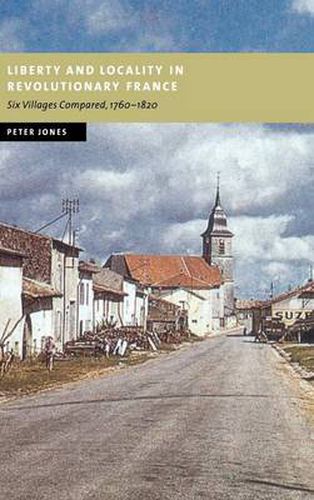Readings Newsletter
Become a Readings Member to make your shopping experience even easier.
Sign in or sign up for free!
You’re not far away from qualifying for FREE standard shipping within Australia
You’ve qualified for FREE standard shipping within Australia
The cart is loading…






This book examines the interface between the old and the new France in the period 1760-1820. It adopts an unusual ‘comparative micro-historical’ approach in order to illuminate the manner in which country dwellers cut themselves loose from the congeries of local societies that made up the ancien regime, and attached themselves to the wider polity of the Revolutionary and Napoleonic state. The apprehensions and ambitions of six groups of villagers located in different parts of the kingdom are explored in close-up across the span of a single adult lifetime. Contrasting experiences form a large part of the analysis, but the story is ultimately one of fusion around a set of values that no individual villager could possibly have anticipated, whether in 1750 or 1789. The book is at once an institutional, a social and a political history of life in the village in an epoch of momentous change.
$9.00 standard shipping within Australia
FREE standard shipping within Australia for orders over $100.00
Express & International shipping calculated at checkout
This book examines the interface between the old and the new France in the period 1760-1820. It adopts an unusual ‘comparative micro-historical’ approach in order to illuminate the manner in which country dwellers cut themselves loose from the congeries of local societies that made up the ancien regime, and attached themselves to the wider polity of the Revolutionary and Napoleonic state. The apprehensions and ambitions of six groups of villagers located in different parts of the kingdom are explored in close-up across the span of a single adult lifetime. Contrasting experiences form a large part of the analysis, but the story is ultimately one of fusion around a set of values that no individual villager could possibly have anticipated, whether in 1750 or 1789. The book is at once an institutional, a social and a political history of life in the village in an epoch of momentous change.